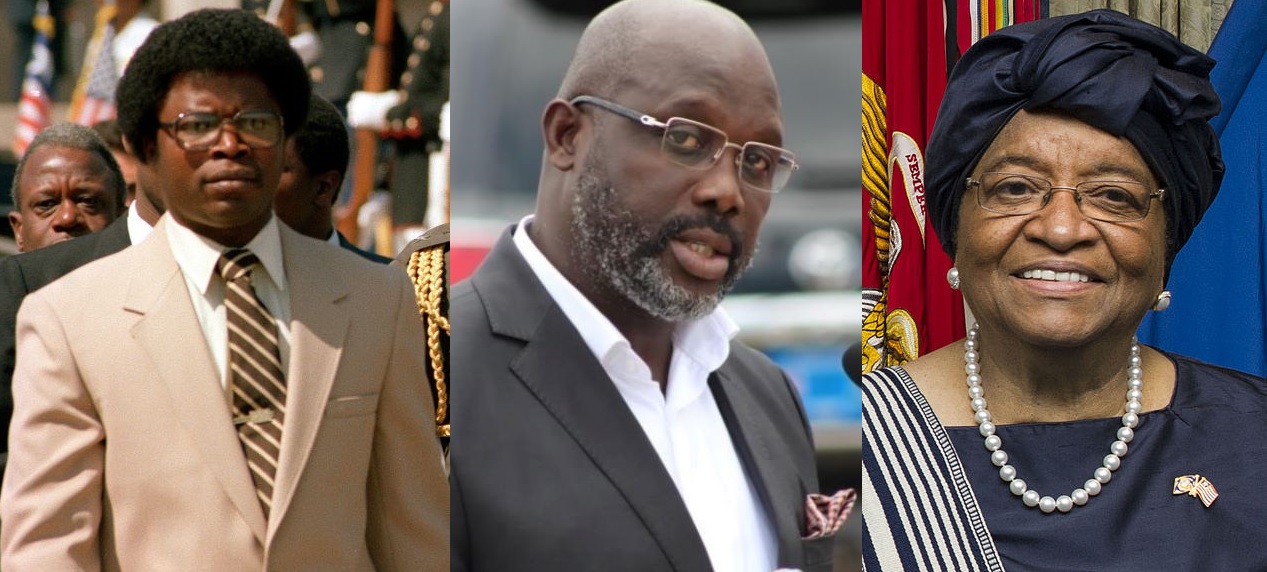Ever since the election of President George Weah and his Coalition for Democratic Change-led government in 2017, the administration has made a concerted effort – wittingly or unwittingly – to construct a new narrative about both immediate and distant past. The immediate past concerns the period of the CDC’s principle political nemesis, former President Ellen Johnson-Sirleaf. The more distant past concerns the rest of Liberia’s history.
Key leaders of the administration seek to rewrite all of distant history through their penchant to claim for themselves accomplishment of ‘first ever’ in the history of Liberia, despite copious fact to the contrary. For example, when the construction of a new military hospital commenced, it was labeled the ‘first ever,’ despite the prior existence of the Soko Sackor Military Hospital at the Barclay Training Center not too long ago.
When efforts are made to re-establish a  Liberian-owned fisheries scheme, the claim of ‘first ever’ was again made, despite the fact that, as early as the mid-late 1960, the Liberian firm Mesurado Group of Companies, had already established an international fisheries operations, with offices in Sierra Leone and Nigeria.
When a new pathology lab was inaugurated at the John F. Kennedy Memorial Medical Center, once again it was the ‘first ever,’ a claim also repeated when new water purification facilities were installed at the White Plains Water Treatment Plant.
This marathon of ‘first ever since independence’ claims may very likely be the result of overzealous administration representatives seeking to embellish the government’s achievements in the hope of impressing unwitting future electorates. Or perhaps a consequence of a lack of historical awareness, which ought simply to be dismissed. But such a response would be more convenient were there not a clear precedence in Liberian history of such a practice – the practice of one political regime seizing all glories for itself, while attempting to vilify, denigrate, and ultimately deny the historic achievements of past administrations and past leaders.
This practice was first introduced by Americo-Liberian leaders who constructed a history that glorified their ancestors as ‘pilgrim fathers’ at the expense of indigenous African leaders who made their settlement on the Grain Coast possible in the first place. The Africans, having been vilified as “savages of a benighted continent†to whom must be “brought the light of civilization and Christianization,†were rendered second class. Even the motto of the University of Liberia – ‘Lux in Tenebris,’ literally translating to “Light in Darkness†– still perpetuates the history of a bygone era.
By the 1960s and 70s, however, this settler-centric narrative was seriously contested by young and progressive activists, most of them hailing from indigenous crop. Led by men like Togba-Nah Tipoteh, Amos Sawyer, Dew Mason, G. Bacchus Matthew, and others, they seized the moment to critique Americo-Liberian colonial history.
But in contesting that history, the ‘progressives,’ in alliance with Western academics, spun a narrative of their own. They vilified and denigrated the True Whig Party and its leadership, at the same time out rightly denying any accomplishments that could be justly associated with the over a century-old leadership of both the party and its predecessor, the Republican Party of first President Joseph J. Roberts.
Themes such as ‘rampant corruption,’ ‘growth without development,’ ‘nepotism,’ and ‘dictatorship’ emerged as popular mantras of the progressives’ resistance. Many of these themes eventually made their way into Samuel Doe’s proclamation on the morning April 12 military coup, which brought the People’s Redemption Council to power and overthrew the last True Whig Party president, William Tolbert, in 1980.
Even today, many of the progressives continue to contest the accomplishments of the True Whig Party, including the administrations of two of its most progressive leaders, presidents William V. S. Tubman (1944-1971) and Tolbert (1971-1980).
In addition to being burdened by the progressives’ history, the Coalition for Democratic Change-led government may be seeking to layer a new narrative upon it, especially regarding the administration of former President Johnson Sirleaf. The CDC-led government has consistently denied, or at the very least, refused to acknowledge, any tangible accomplishments of the Sirleaf’s 12-years of governance, despite all evidence to the contrary.
From one public radio to another, key officials of government, including Information Minister Eugene Nagbe, continue to castigate and dispute key accomplishments of the Ellen administration, while accusing her of planting the landmines which today are wrecking the Liberian economy into record levels of inflation and government insolvency. Ironically, Nagbe was also information minister under Sirleaf, where he performed an exactly opposite role as her fiercest defender.
The TWP’s success in colonial history is attributable largely to its political power, and its ability to create and propagate a version of history compatible with its worldview. The ‘progressives’ own narrative of TWP rule has survived relatively intact, due largely both to their brief stint in power alongside Samuel Doe; but also due to their intellectual abilities and copious anti-TWP writings. Today, however, they find themselves increasingly having to defend their own contributions to Liberia’s democracy, given their role in Samuel Doe’s dictatorship (1980-1990), and in fomenting 14-years of civil war (1990-2003).
As with all histories, key leaders of the CDC are now contesting and attempting to rewrite history as best as they can. But Liberians may take solace in the unlikely creation by CDC-narrative, simply because, unlike both the TWP and ‘progressive’, the CDC possesses neither powerful ideologues, nor avid writers capable of constructing any coherent historical narrative of its own.



